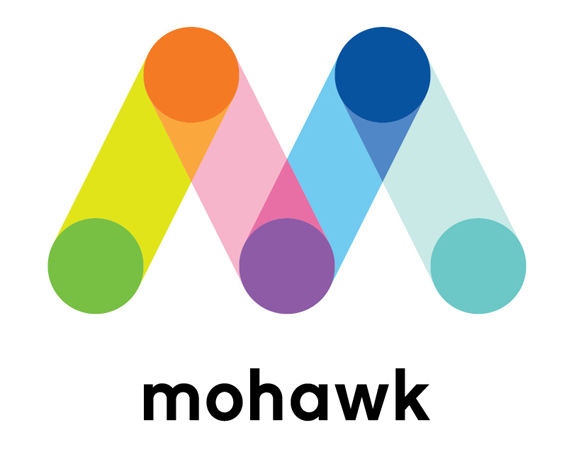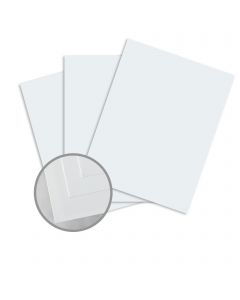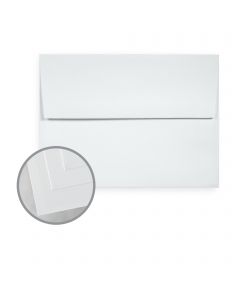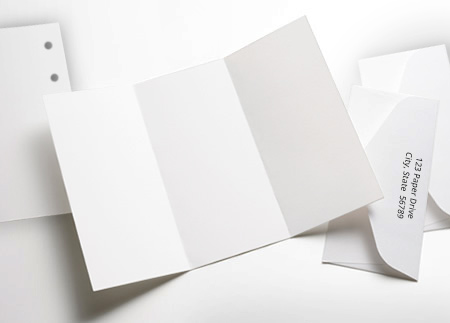
Via Smooth Light Blue Card Stock - 26 x 40 in 80 lb Cover Smooth 30% Recycled 500 per Carton
by Mohawk Fine Papers
see more detailsAdd Paper Services
Paper services are available when viewing this page on a desktop computer
Select Paper Services
Matching Products
-

Via Smooth Light Blue Paper - 8 1/2 x 11 in 24 lb Writing Smooth 30% Recycled Watermarked 500 per Ream
-

Via Smooth Light Blue Paper - 35 x 23 in 24 lb Writing Smooth 30% Recycled Watermarked 1500 per Carton
-

Via Smooth Light Blue Envelopes - A7 (5 1/4 x 7 1/4) 70 lb Text Smooth 30% Recycled 250 per Box
-

Via Smooth Light Blue Paper - 23 x 35 in 70 lb Text Smooth 30% Recycled 1200 per Carton
-

Via Smooth Light Blue Paper - 25 x 38 in 70 lb Text Smooth 30% Recycled 1000 per Carton
- See all color matched products
-

Via Smooth Light Blue Paper - 8 1/2 x 11 in 24 lb Writing Smooth 30% Recycled Watermarked 500 per Ream
-

Via Smooth Light Blue Paper - 35 x 23 in 24 lb Writing Smooth 30% Recycled Watermarked 1500 per Carton
-

Via Smooth Light Blue Envelopes - A7 (5 1/4 x 7 1/4) 70 lb Text Smooth 30% Recycled 250 per Box
-

Via Smooth Light Blue Paper - 23 x 35 in 70 lb Text Smooth 30% Recycled 1200 per Carton
-

Via Smooth Light Blue Paper - 25 x 38 in 70 lb Text Smooth 30% Recycled 1000 per Carton
More About This Product
About this Product
Product Uses
- Business Cards
- Greeting Cards
- Menus
- Report Covers
Specs
| Mill | Mohawk Fine Papers |
|---|---|
| Brand | Via Smooth |
| Product Type | Card Stock |
| Size | 26 x 40 |
| Printer Compatibility | Offset Printing |
| Finish | Smooth |
| Coating | Uncoated |
| Grain Direction | Grain Long |
| Paper Style | Folio |
| Recycled Percentage | 30 |
| Eco Features |
Green Seal Certified
Lignin Free
Made Using Wind Power
Processed Chlorine Free
Recycled Content
|
| Paper Weight |
80 lb Cover
216 G/M2
Caliper 10.5
190 PPI
|
| Paperator™ Color Value |
CMYK
C = 4, M = 6, Y = 0, K = 4
RGB
R = 234, G = 229, B = 243
|
Printing Hints
Mohawk Via Smooth
Mohawk Via Smooth Papers are easy to print on when following these simple hints. It is recommended to pre-test all printing procedures prior to press time to ensure the desired results are achieved.
OFFSET INKS:
Print Mohawk Via Smooth like any conventional uncoated paper. We recommend heat resistant, wax free ink if you plan to follow lithography with xerographic or laser printing technologies. A slight increase in printing pressure may help the ink cover the texture well.
HANDLING:
Keep Mohawk Via Smooth products wrapped until the moment of printing. It is essential to let the paper acclimate, for a minimum of 24 hours – longer during cold weather – in the press room while still wrapped in mill packaging. Keep Mohawk Via Smooth products covered during drying, between passes and prior to any finishing work. Pressroom conditions should be as close as possible to 68 degrees, and 45-60% relative humidity.
VARNISH:
Varnish is optional as a surface protector.
FOLDING AND SCORING:
To properly score and fold Mohawk Via Smooth, use a rounded channel score with a 2 point rule and a 0.040" or 0.050" channel matrix. Score with the grain, using a light letterpress score for maximum control. On large projects with less stringent quality requirements on-press litho-scoring may be acceptable. Fold into the bead of the score.
BINDING:
Mohawk Via Smooth is suitable for all standard binding processes. It is important to plan for proper grain direction in all binding applications. Grain direction should run parallel to the spine for optimum results.
LASER AND INKJET GUARANTEED:
Via Smooth in 8 ½ x 11 and 17 x 11 sizes of 24 lb writing has Mohawk’s electronic printing guarantee.
PREPRINTING GUIDELINES FOR DIGITAL APPLICATIONS:
Most Mohawk papers are engineered for high-performance on both offset and digital printing equipment. Many applications, such as forms and letterheads, require you to print with offset lithography before subsequent printing in digital equipment. We guarantee our papers for these applications, provided standard industry guidelines for preprinting are followed. Please note that heat-set web offset printing is not recommended for pre-printed shells.
PAPER SELECTION:
Papers with good formation (an even distribution of fibers) and a smooth finish provide the best results in most digital equipment. Bright white paper will add to color brilliance, contrast and definition. Toner does not adhere well to uneven paper surfaces, so heavily textured or embossed papers are not recommended for traditional digital presses. Check the specifications of the digital printing equipment before running coated paper. The paper’s basis weight should fit within the equipment’s specifications. Some machines must run 20 to 24 lb. (70 to 90 gsm) paper; others have a much wider range. Plain paper samples for testing in digital printers are available. Paper merchants can provide samples of the specific paper grade, basis weight and size.
PRINTING AND DESIGN:
Stationery and forms preprinted with ordinary ink will smear under the extreme heat and pressure of fuser rollers in high-speed copiers. In addition, improper handling and storage may cause jams. It is important to follow these standard industry practices when printing jobs that will be run through copiers and laser printers.
Provide the copy/laser printing schedule to the offset printer, so that the job is planned correctly. Discuss options if it is a tight turnaround.
The ink manufacturer can provide inks for laser applications. The job will require oil-based heat- or thermal-resistant inks. Inks should withstand 400° Fahrenheit without smearing. Avoid metallic inks as the metallic flakes can build up on the fuser rollers.
Fluorescent inks are also not recommended. Minimizing ink and water on press should help reduce the possibility of wavy paper.
Anti-offset powder or spray residuals can interfere with toner application and build up in the system, causing problems.
Toner does not adhere well to heavily printed areas. The digital image should print directly onto the paper, avoiding an overlap of offset ink. If the job specifies an overprint of a preprinted solid area, use a halftone screen to achieve the desired color.
If planning to imprint just one side of the preprinted form, print and pack so that the top (felt) side is imaged. For twosided copying, the bottom (wire) side should be imaged first. Note: Mohawk papers are packed felt side up in cartons and reams. Care should be given when specifying relief processes, such as thermography, engraving, foil-stamping, and embossing as they may damage your equipment and cause jams.
Paper must be trimmed precisely, square, and with clean cuts. Improperly trimmed paper can misfeed and cause performance problems.
PACKING AND STORAGE:
Prevent tight plastic shrink-wrapping as it will curl edges and corners, leading to jams. Packing with chipboard is preferable. After wrapping, store preprinted material for 10 days before using to ensure completely cured ink and acclimated paper. Store paper at 50% relative humidity and 70° Fahrenheit.
ENVELOPES:
Testing the runnability of envelopes is recommended. Because of multiple paper thickness and variable envelope construction, we cannot guarantee performance once papers are converted into envelopes. Paper merchants can provide specific envelope samples for testing.
Due to the large variety of equipment available for both offset and digital printing, we strongly recommend testing any paper before committing to a large program.
For more information and samples, please call Mohawk at 1 800 THEMILL. www.mohawkpaper.com
End of Preprinting guidelines. Used with permission.
ADDITIONAL PAPER PRINTING APPLICATIONS:
Desktop Laserjet Printing, Laser Printing and Inkjet Printing, thermography, flexographic printing, letterpress printing, gravure printing, screen printing, foil stamping, engraving, embossing, die cutting, saddle stitching, perfect binding.

Paper Services
Choose from services including perforating, cutting, hole punching and scoring
Learn More


